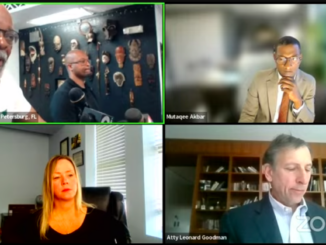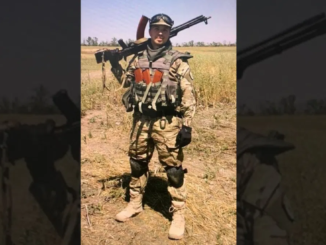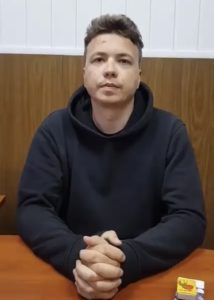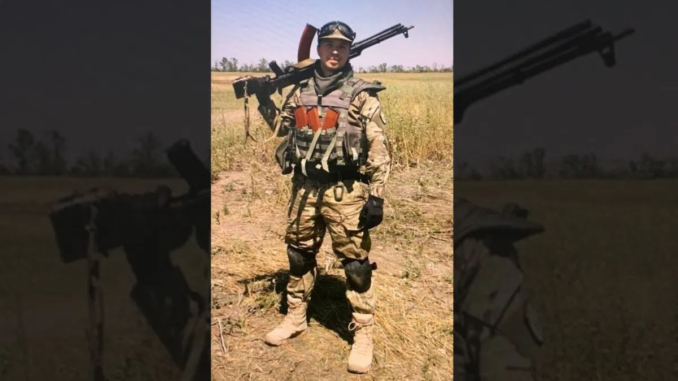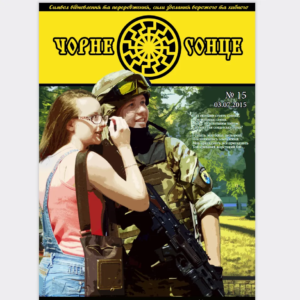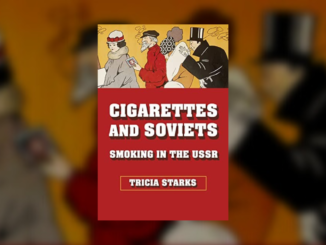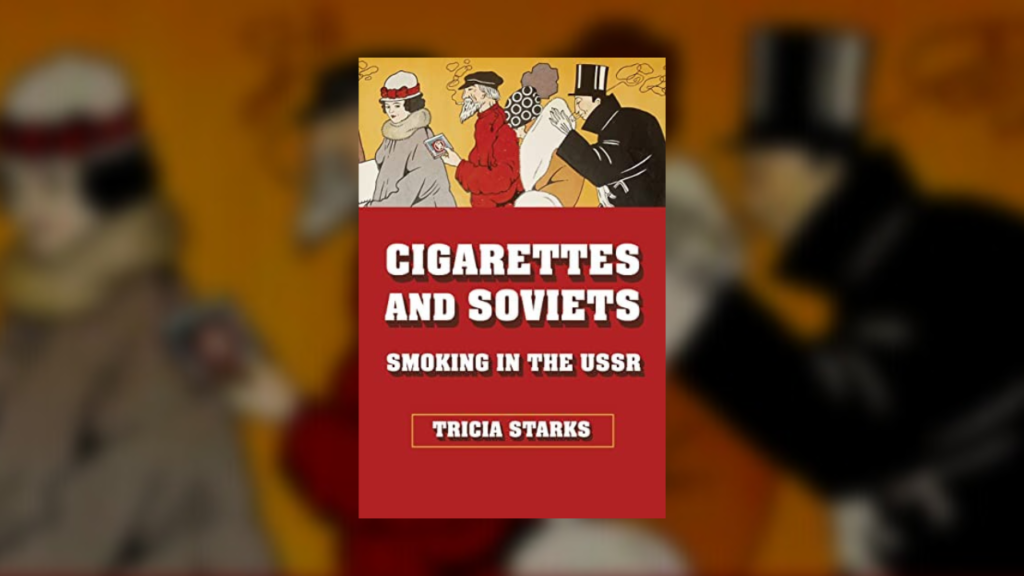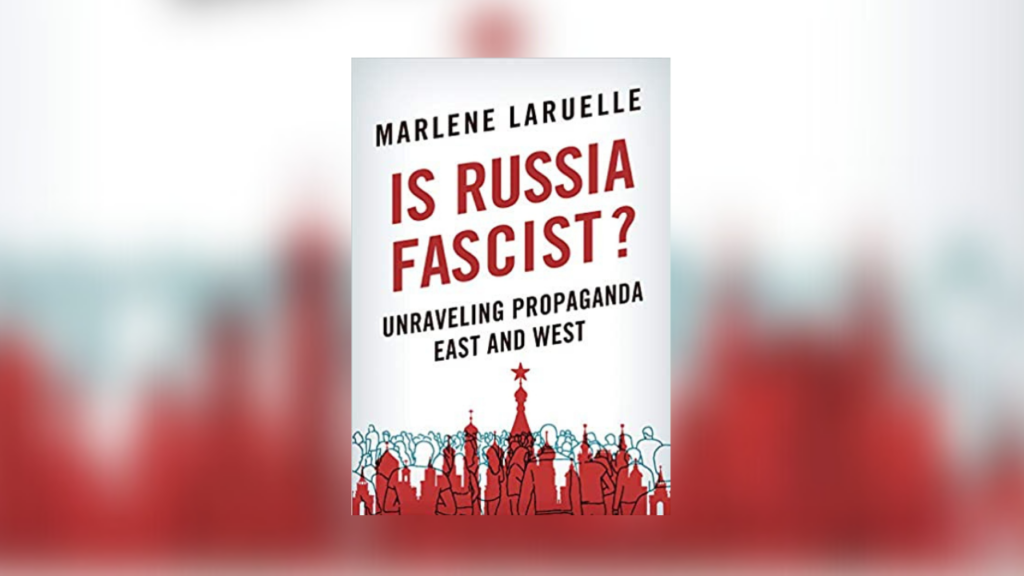
Is Russia Fascist?: Unraveling Propaganda East and West by Marlene Laruelle (Ithaca, New York: Cornell University Press, 2021)
Mainstream liberal U.S. media such as MSNBC and the New York Times have dedicated countless hours and pages to presenting Russian President Vladimir Putin as the devil incarnate. In 2014, former U.S. Secretary of State Hillary Clinton went as far as to compare his actions in Ukraine to those of Hitler in Europe (p. 3). Then U.S. President Joe Biden called Putin a “killer” on March 17 in what appeared to be his way of proving how “presidential” he is compared to Donald Trump. When RT journalists were introduced on a 2019 panel at the Assembly of Journalists and Social Communicators in Caracas, the crowd of Venezuelans burst into applause chanting, “Putin, Putin, Putin!”
Vilified by certain global class forces and loved by others, what is the true ideological character of Putin and the Russian political leadership? Moving beyond certain propaganda, while remaining bogged down in a clear anti-Soviet evangelism, French historian Marlene Laruelle makes a convincing academic argument that Russian state ideology is not fascist.
The George Washington University professor and U.S. State Department researcher has dedicated her professional life to becoming an expert on Russian history and what she terms the dominant ideology of the Russian state today, “illiberalism.” Her book, Is Russia Fascist?: Unraveling Propaganda East and West, accomplishes two tasks: One that is intellectually honest and another that further contributes to the Memory Wars and Battle of Ideas by perpetuating biased Western views of key issues that have arisen in Soviet history and in contemporary Russia. An example of Memory Wars is when right-wing states raise questions about who actually collaborated with the Nazis in an attempt to create an alternative memory of events.
Dismantling the Claim That Russia Is Fascist
The greatest strength and central thread of the book is Laruelle’s consistency in proving the Russian state is not fascist.
Chapter 6 analyzes the country’s “vivid far-right landscape.” The author looks at skinheads, militia subculture, combat sports, extreme expressions of the Russian Orthodox Church, conspiracy theories, the Night Wolves motorcycle club, among other examples of this landscape. She concludes these ideological trends—similar to what is found in the West—are marginally present in Russia, but have little to no influence on Russian leadership and receive no institutional support from the state. This milieu, or ecosystem, as she calls it, is in fact “largely repressed by Russian state organs” (157).
Laruelle dedicates sections of chapters 6 and 7 to evaluating the reach of political analyst Alexander Dugin—known as “Putin’s brain”—and his international far-right contacts. She concludes the West exaggerates Dugin’s influence and his “networks and international visibility should not be the tree obscuring the forest” (126). Despite Western rumors, Laruelle writes, “Putin has never mentioned him [Dugin]” nor met him and she adds, “Dugin has little direct access to the highest echelons of the Presidential Administration” (118).
Laruelle explains slapping the fascist label on Putin and Russia is not scholarly, but is an attempt by certain forces to discredit Russia to prevent the country of 144 million from being taken seriously in the international arena. Her scholarship finds the Russian state draws from myriad ideological sources, such as social conservatism, Soviet nostalgia, illiberalism, Russian orthodoxy and Russian nationalism. The professor concludes: “If there is an overarching ideological trend to identify, it is illiberalism… a denunciation that holds that liberalism is now ‘obsolete’ and has ‘outlived its purpose,’ as Putin declared in 2019, and a return to an ideology of sovereignty—national, economic and cultural-moral sovereignty” (158). The way Laruelle uses “liberalism” sounds innocent enough, but it’s a euphemism for capitalism, imperialism and Western hegemony, words the author never uses in her book.
‘Unraveling Propaganda’ with More Disinformation?
While Laruelle may be on the liberal left of the internal landscape of the State Department, her overall work is far from left or anti-imperialist. As the director of the Institute for European, Russian and Eurasian Studies (IERES) at George Washington University, she pulls no punches on the Soviet Union. Is Russia Fascist? ignores the Soviet Union’s legacy as a besieged workers’ state the U.S. ruling class and its junior imperialist partners sought to, and ultimately played a key role in, destabilizing and overthrowing.
Anti-socialism and anti-communism, the unofficial religion of the United States and Western Europe, dot the 166-page text.
Is Russia Fascist? is a most provocative title for a book. The subtitle however Unraveling Propaganda East and West is misleading and inaccurate on some levels. Here are a few suggestions if Professor Laruelle wants to more honestly entice the reader: Is Russia Fascist? Heaping more Western Propaganda onto the Dominant Historical Narrative or Is Russia Fascist? Is the U.S. more Fascist than Russia? Is U.S. Foreign Policy Fascist?
Laruelle reduces complex, life-and-death military decisions to anti-Soviet soundbites. For Laruelle, it is senso comune (common sense), in the Gramsci sense of the word, that the Soviet Union was bad. Casting off critical reflection, she presents highly-debated topics as already existing, self-evident truths. Here are some examples: “The annexation of Crimea” (19), “the massacre of Polish officers in the Katyn forest” (33), the “widespread anti-Semitism of the late Stalin era” (40), “the great patriotic war as the principle myth capable of uniting Russian society” (45).
What part is myth? That 27 million Soviets gave their lives? That 20 million more were injured? (2). These are the statistics the author herself offers. “The Ukrainian crisis” (47), “the Molotov-Ribbentrop Pact (50) and “the democratic regimes” (159) she mentions refer to the “west Soviet occupation of the Baltic states” (165).
These historical events and terms need clarification the author does not provide. The reality is no shortcuts exist in the field of dialectical materialism.
A book review is not the place to clarify the historical record on the Molotov-Ribbentrop Pact or the Katyn forest massacre. But in terms of World War II, or “The Great Patriotic War,” as it is known in Russia, the cold, hard, tragic facts speak for themselves. The Soviet Union lost 27 million of its sons and daughters to ward off the hoards of Nazi invaders. For comparison, the United States lost 200,000 troops in WWII, the British lost 400,000 and the Nazis themselves lost 800,000. All of humanity owes a great debt to the Red Army, the Partisans (Soviet resistance groups) and the Soviet peoples.
These topics deserve intense scrutiny and study. Entire books are dedicated to the subjects. One place to begin is with books like Russia At War: 1941-1945, The History of the Russian Revolution and books by Polish Marxist writer Isaac Deutcher.
In conclusion, while Laruelle makes a valuable contribution to providing a nuanced, sociological portrait of Russia today, she fails to disentangle certain Western propaganda. It quickly becomes clear it is the reader’s responsibility to disentangle her propaganda.
Behind a veneer of so-called academic objectivity, she directly and indirectly propagandizes on behalf of U.S. imperialist interests, which seek to encroach upon and control Ukraine, Crimea and the entire landmass that was the Soviet Union.
Danny Shaw is a professor of Caribbean and Latin American Studies at the City University of New York. He frequently travels within the Americas region. A Senior Research Fellow at the Center on Hemispheric Affairs, Danny is fluent in Haitian Kreyol, Spanish, Portuguese and Cape Verdean Kriolu.

